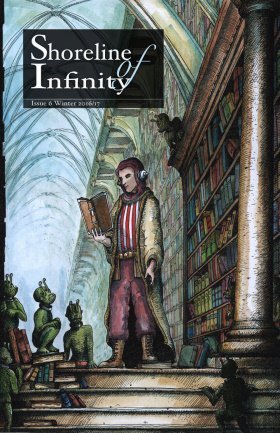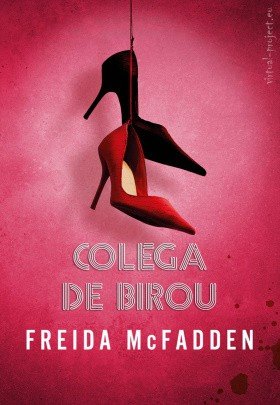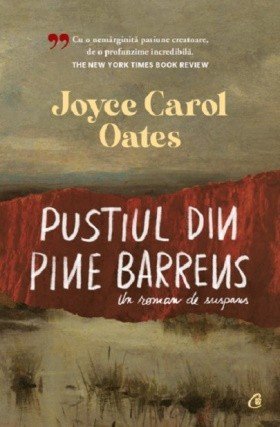“You’ll be fine.” I grin, happy to be rid of them.
Sanctum School’s across the city, but the weather’s fine. I stroll, eager to take in as much sunlight as I can before the clouds return. Janitors suck up streaks of dust from the paths, wiping windows so that the ads are clear. The briefcase is lighter than it looks; reinforced alloy, photon strapped to my wrist, packed with excess worms, a tiny ocean of them locked away. It would be less conspicuous without the strap but thefts are up lately, and the newscasters are eager to tell us about the dreaded reality of the world. “Stay In. Don’t Take Risks. Watch Out For Deadheads.” All the usual jargon we only half believe, and it’s dissolved by a walk in the open air.
Sanctum’s not too far but I don’t fancy the Low Down side of town – too many Deadheads, too unpredictable. I run through the city maps I’ve memorised, checking the route. Heaven Park will take longer but it’s scenic; I’ll take it.
The park’s brass gate welcomes me, its golden arches stretching high, gentle music willowing through the blades of grass and tree branches. A window reminds me to “Stick to the path (on pain of electrocution)” and I do. There are no Janitors, the floor and plants are already dusted clean, the stimulant birds tweet in their nests – Four Seasons by Vivaldi, I think, but I’ve not taken the Classical Music worm. They flutter their luminescent wings, scales glimmering like the real birds from the days before the clouds. I stand, close my eyes, lose myself in their song for a moment, before I fall to the floor.
“Get it! GET IT!”
“Shit, hurry!”
“Got it!”
The alarm is all I remember fully, and their faces. Two of them: one male, huge, muscular, deep black eyes, a sharp chin. The other: female, ruby red haired, green aug eyes. I tell the police everything I recall. They seem surprised.
“Not the usual suspects.” The officer tells me, standing beside my hospital bed. “Unusual. What did they take?”
“Worms.”
“Any particular kind?”
“I don’t think so. Just educational ones, high school.”
“Thank you, you’ve been a great help. We’ll find them. Sorry about your hand.”
“Thanks.”
Sabre enters as the cops leave, a look of sympathy on her face, holding a data card for the printer.
“Chocolates and grapes, I hope you like them.” She inserts the data card and prints a small plate of dessert. “I’m not peeling them for you.” She throws a grape into her mouth and chews, then forces a chocolate between my lips.
“Thanks.”
“So, how’s the hand? Did you get a good look at them?”
I pull the sheet from my mound of flesh, where my hand is being rebuilt. “Fine, it takes a week they said. Recycled nanites, but I’ll be back to normal.”
“A week off, nice. All doped up?”
“Yeh, pretty sweet. And yes, I saw them. It was over quickly though, they just cut through me and took the briefcase. Left me on the damned grass, buzzing.”
“Ouch! Well, you’ll be fine. We really need to do something about all the Deadheads though, it’s getting too much. Normal people are getting hurt. I’m not going near that park again, not alone anyway.”
“Me neither. And those martial arts worms, whatever they were, didn’t help a bit, I didn’t even see the attack coming.”
“Waste of money.” Sabre offers me another chocolate, I refuse, and she chomps it down. “Anyway I just came to check you’re okay. And to give you this in person.” She swipes at the window and a Get Well Soon card appears: the staff and some students are smiling, with Doctor Hello at the centre. “I added Hello, I know how much you love and admire him.”
“Yeh, thanks for that.” I pull a face, part playful and part genuinely disgruntled. “He’s my hero.”
Sabre doesn’t come back to the hospital and the week drags. The thought of going back to the school – to the insipid jargon of Doctor Hello, the sweat-laden staff, the smarmy kids, the hours of boredom, the worms, everything except for Sabre – fills me with jitters, so I take meds to ease my nerves. I spend my wages on printer data, some new games, a few dozen books, put a couple of worms on order, cancel them. I watch the rolling news: crisis in the far West, politicians bickering, education at the centre of most stories.
“The divide between rich and poor,” the broadcaster says, “is epidemic.” He visits a worm farm, a vast glimmering factory full of flashing glass tanks. He dips his gloved hand into a tank and pulls out a handful of worms, shows how they flinch at bright lights. “It’s learned from their ancestors,” he says to the camera. We know the story by now, but he tells it anyway. History repeats. “These worms never experienced light and shock therapy, yet they react to it. The reflex memory is passed on through the chemicals of other worms’ experiences.” The camera cuts to the human labs. “This lab collects data from these great minds.” Rows of men and women sit, reading books and data sheets, swiping windows, listening to music through headphones. “All this, to make worms. But some feel that the big question still needs answers: are worms really good for us? Only time will tell.”
I turn the news off, pack my bags and stretch the fingers of my new hand. No scars, the kids will be disappointed. I’m a little disappointed, too. Everyone likes a scar, it’s a story lived and worth remembering.
Russell Jones is an Edinburgh-based writer and editor. He has published 4 collections of poetry, and has edited 2 poetry anthologies. He is deputy and poetry editor of Shoreline of Infinity. Russell also writes YA fiction. He has a PhD in Creative Writing from The University of Edinburgh.
 SF Caledonia
SF Caledonia
Monica Burns
First published in 1874, this book is unmistakeably a work of science fiction. It is Andrew Blair’s Annals of the Twenty-Ninth Century; Or, The Autobiography of the Tenth President of the World Republic.
In a nutshell, it is a future history of Earth as a conglomerated World Republic that has become a technologically and socially advanced Utopia by the 2800s. It describes the countless inventions, social progress, the ambition and achievement of a society in the prime of its life. And there is even some space travel.
Unfortunately, the book is quite rare, so I could only find Volume 1 to read, but the story goes on for a further two volumes in which the protagonist ventures to Venus and Mars.
Volume 1 is narrated by Diogenes Milton, the tenth president of the World Republic, as he chronicles the years of his own lifetime and their personal, political and scientific landmarks. A considerable portion of the book is spent reflecting on the great advances of his century, in comparison to life in the previous millennium, specifically the 19th century.
I’ll admit that I did not initially warm to this book. I was gnashing my teeth at the chapters and chapters of ‘info-dumping’. The author’s intention, obviously was to fill the readers in on all the events and progress in the time between the 19th century and the 29th, and to wow a contemporary Victorian audience with the marvels he describes, but it could have been doing with less of that and more in the way of concrete plot. I almost laughed when I saw that a newspaper article from Blair’s time, 1885, in the Dundee Evening Telegraph made a similar point:
“Its fault is in that the first and second volumes the author permitted himself to run into a diffusion of language and an extravagance of imagination that keeps the reader too long from getting at the raison d’être of the work.”
 Modern criticism also picks up on this but readers ultimately, past and present, seem to be forgiving of its flaws in the light of the enormous scope of Blair’s imagination. The same article goes on to say that,
Modern criticism also picks up on this but readers ultimately, past and present, seem to be forgiving of its flaws in the light of the enormous scope of Blair’s imagination. The same article goes on to say that,
“The book, which is characterised by much boldness of thought, is a politico-social satire, and is written in a style at once incisive, trenchant, and brilliant.”
The article also tells us that the novel was a hit when it first came out. Apparently it “created little short of a sensation in literary circles” when it was published. The initial lack of narrative is made up for in stunning inventions and colourful and emotive description of the future world. I would say this book is a science fiction artist’s dream. It is so densely packed with description of dynamic inventions and extraordinary views of cityscapes, skies, mountains and space, that it would really come to life as a series of pictures around the walls of a gallery.

























